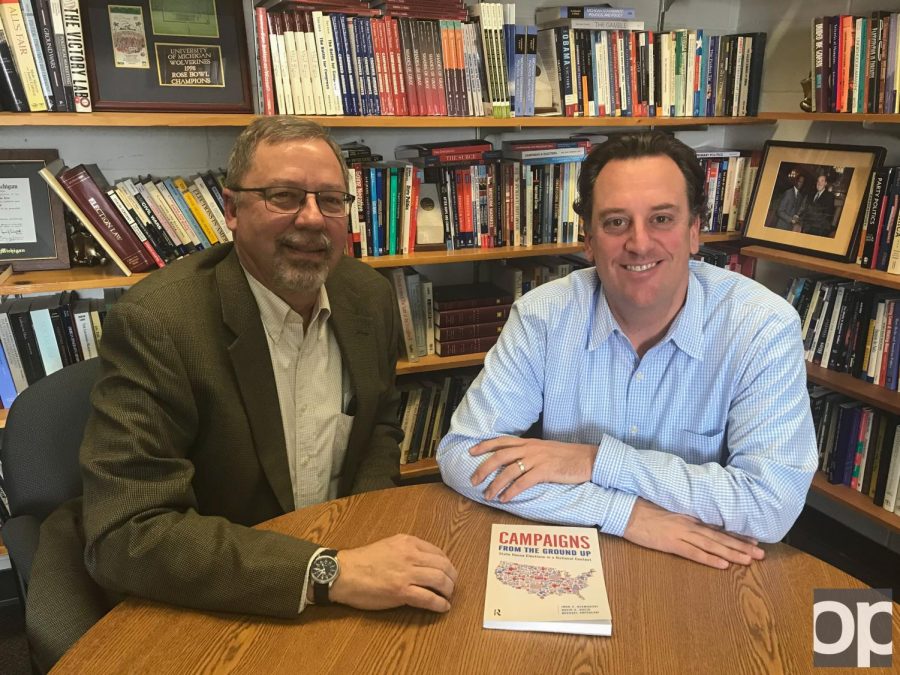Professors start political campaign boot camp
Political Science professors, David Dulio and John Klemanski started a new PACE course for political campaigning to help students who have public office aspirations.
PACE stands for professional and continuing education, and this course is available to anyone regardless of major. It teaches individuals how to effectively run for office or manage a campaign. There is already a similar class taught by Dulio and Klemanski. However, this course is condensed into six weeks.
This course is also less academic, as testing will not be involved and it is more self-driven. The cost is $250 per person and it acts as a blending between a workshop and a course because it is more how-to and practical.
“This would not be on an individualized basis but more general of how to run a campaign… less specific details such as a person’s campaign message,” Klemanski said.
The boot camp-like course is an effort that fits in with community engagement and civic engagement, which is one of Oakland University’s main initiatives.
“The political climate today has energized people as never before to get involved and consider running for office,” said Dulio, director of political science. “Our hope is to capture some of that interest and teach political newcomers and strategists some tricks of the trade that might be just what they need to run a successful campaign.”
The original 14-week course is worth four credits, has required textbooks and exams and goes into more depth about political campaigns. The decision to readily make the new course available was simply because of how many open seats there are this year. 2018 is the election year for almost all of seats in Congress including Rick Snyder’s seat as Michigan’s Governor.
For most, political campaigns are vague and what is required to run is often something forgotten or rarely thought about. In the boot camp course, students will learn all about filing to run and the requirements to be an active member in local, regional and national government.
“The goal would be that they could effectively run for office in a political campaign and [be] armed with enough skill to be successful,” Klemanski stated.
The students in the PACE program would be expected to anticipate running for office or be managing a campaign soon after the course. Toward the end of the 14-week version, students would be writing a campaign plan for a real life candidate based on what they learned in the curriculum, whereas the six-week version would be working on that in exercises throughout the shorter time period.
“There is a science to political science, we want to do a district and voter analysis to know about who votes… and being able to mobilize them, which may not be obvious to the average person,” Klemanski explained.
Both professors said the course and the information it provides will always be useful and there are always people who are looking to run for office. They hope it will spur more interest in young people to either run or to vote.
“One of the lessons we can learn from Trump is that you don’t necessarily have to be a politician to run and win,” Klemanski said.









